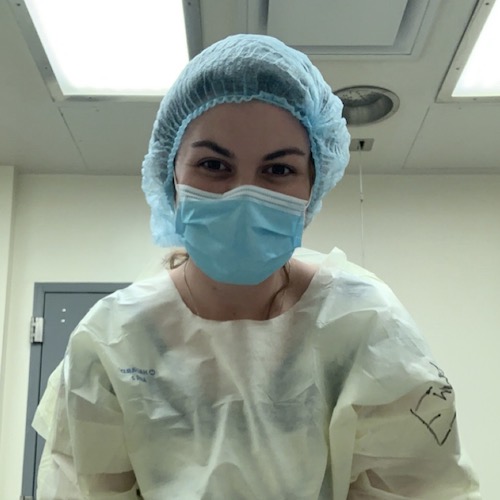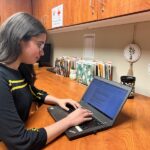
Neuroscience major finds new passion for medicine and research

Through her APEX Fellowship, Emma Saxton ’22 researched how infections and diseases, such as cancer, affect neural activity and how chemotherapy can change one’s immune system and cognitive functioning. As a College of Wooster neuroscience major, Saxton completed her research in the Pyter Laboratory at Ohio State University, which focuses on immunology and neurology.
“This internship really opened my eyes to what a career in research looks like. While I was planning on pursuing a career in medicine, I now know that I am actually interested in a combination of medicine and research.” -Emma Saxton
How did you learn about the internship opportunity for your APEX Fellowship? Why was the position a good fit for you?
“I heard about the Pyter Lab from a friend who had worked with them in the past. The position was a good fit for me because I was able to explore many different areas of behavioral neuroscience research, and I was given the opportunity to assist on a variety of projects at different stages.”
What interests you most about the work you did? What were some of the things you did each day?
“I thought it was interesting to see how easily applicable the research done on rodents was to humans. I also thought it was interesting how each experiment built off ones that had occurred beforehand because there were always more questions or questions that were left unanswered. Large-scale experimental planning was a very valuable experience to see. Each day I had a variety of tasks that usually consisted of some combination of assisting on surgeries, animal handling, tissue collection, behavioral testing, and image analysis.”
Who was your Fellowship mentor and how did they help you to succeed in this position?
“My faculty mentor was Professor Grit Herzmann [department chair of neuroscience and associate professor of psychology]. She was extremely helpful in challenging me to ask questions to everyone working in the lab, not just to better understand the research they were doing, but to question what a career in research looks like and to gain advice from them. Professor Herzmann also helped guide me in professional development, such as how to ask for a letter of recommendation and maintain connections even after leaving my position.”
What are some skills you’ve learned that you see yourself carrying forward into your career?
“I have gained several skills from my internship. I know many of the technical skills I learned, such as Image J analysis, cryostat, behavioral testing, and tissue collection, are skills I can use in different areas of behavioral neuroscience research. Additionally, simply working in a professional environment taught me skills like effective communication, that can be applied in every career.”
How has the internship helped you to see what’s next for you?
“This internship really opened my eyes to what a career in research looks like. While I was planning on pursuing a career in medicine, I now know that I am actually interested in a combination of medicine and research. After Wooster, I plan on going to graduate school to pursue that.”
Posted in Experiential Learning on November 5, 2021.
Related Posts
Related Areas of Study
Neuroscience
Psychology, chemistry, philosophy, computer science, and other disciplines combine in the study of the nervous system
Major

